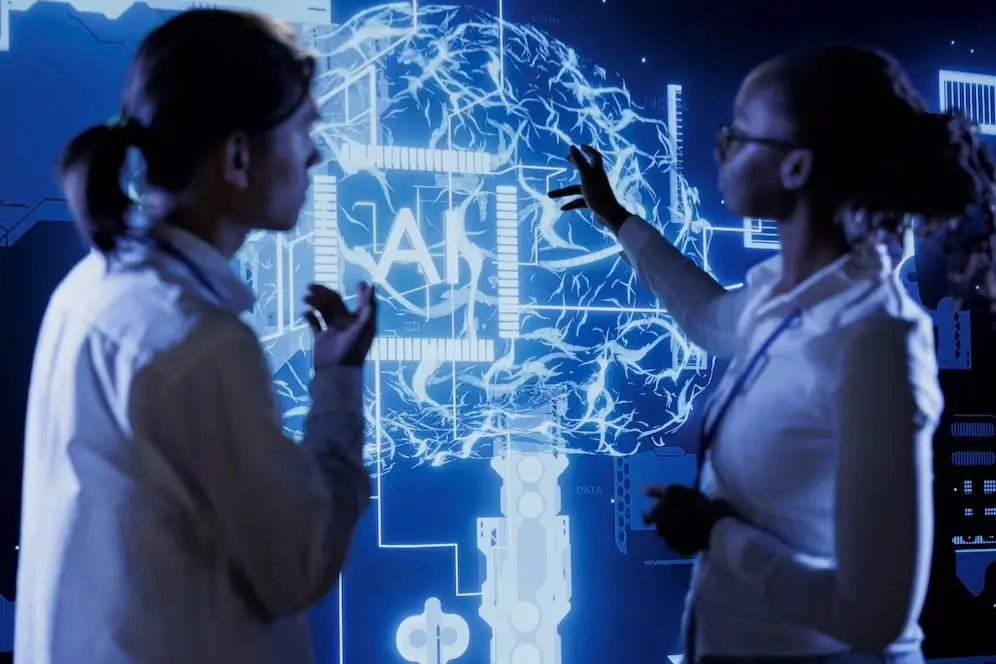In the realm of modern industry and commerce, the advent of Artificial Intelligence (AI) and automation represents a monumental shift in how businesses operate and how work is performed. These technologies are not just trends but transformative forces that have the potential to reshape entire industries, redefine job roles, and fundamentally alter the dynamics of the global workforce. This blog explores the profound impact of AI and automation on workforce dynamics, examining both the opportunities and challenges they present in today’s rapidly evolving landscape.
Introduction: The Rise of AI and Automation
Artificial Intelligence, once confined to the realms of science fiction, has now become a reality with tangible applications across various sectors. AI refers to the simulation of human intelligence processes by machines, particularly computer systems. Automation, on the other hand, involves the use of technology to perform tasks with minimal human intervention. Together, AI and automation are revolutionizing industries ranging from manufacturing and healthcare to finance and customer service.
The Promise of AI and Automation
- Enhanced Efficiency and Productivity
AI and automation have the potential to significantly enhance operational efficiency and productivity within organizations. By automating routine tasks, predictive analytics, and optimizing processes, businesses can streamline operations and allocate human resources to more strategic and creative endeavors. For instance, in manufacturing, robots equipped with AI can perform complex assembly tasks with precision and speed, leading to increased output and reduced error rates.
- Innovation and Technological Advancements
AI-driven technologies are catalysts for innovation, driving breakthroughs in fields such as healthcare, transportation, and agriculture. Machine learning algorithms can analyze vast amounts of data to uncover patterns, predict outcomes, and accelerate scientific research. Autonomous vehicles powered by AI promise safer transportation systems, while AI-powered medical diagnostics offer more accurate and timely patient care.
- Personalization and Customer Experience
AI enables businesses to deliver personalized experiences to customers through data-driven insights and predictive analytics. Chatbots and virtual assistants powered by natural language processing (NLP) can engage customers in real-time, resolve inquiries, and provide personalized recommendations based on user preferences and behavior. This level of customization enhances customer satisfaction and loyalty, driving business growth.
Challenges of AI and Automation
- Job Displacement and Workforce Restructuring
One of the most significant concerns surrounding AI and automation is their potential impact on jobs. Automation can lead to the displacement of certain roles, particularly those involving repetitive tasks that can be performed more efficiently by machines. This shift necessitates workforce restructuring, retraining programs, and efforts to reskill employees for jobs that require advanced technical and analytical skills.
- Skills Mismatch and Education Gap
The rapid pace of technological advancement in AI and automation has created a skills gap in the workforce. There is a growing demand for professionals skilled in data science, machine learning, cybersecurity, and other AI-related disciplines. Addressing this skills mismatch requires investment in education and vocational training programs that equip individuals with the competencies needed to thrive in a digitally-driven economy.
- Ethical and Socioeconomic Implications
The integration of AI into various aspects of society raises ethical considerations regarding data privacy, algorithm bias, and the impact on societal norms. Additionally, there are concerns about socioeconomic disparities, as AI adoption may exacerbate inequalities if access to technology and opportunities for skill development are not equitably distributed.
Navigating the Future of Work with AI and Automation
- Reskilling and Upskilling Initiatives
To mitigate the negative impacts of AI and automation on the workforce, organizations and governments must prioritize reskilling and upskilling initiatives. This involves providing training programs, certifications, and professional development opportunities that enable workers to adapt to evolving job roles and technological advancements.
- Collaborative Human-Machine Workforce
The future of work is likely to be characterized by collaborative partnerships between humans and machines. AI and automation can augment human capabilities, enabling employees to focus on creative problem-solving, critical thinking, and decision-making tasks that require human intuition and empathy.
- Regulatory Frameworks and Ethical Guidelines
Governments and regulatory bodies play a crucial role in establishing frameworks that govern the ethical use of AI, ensure data privacy protections, and promote inclusive growth. Ethical guidelines should address algorithmic transparency, accountability, and the responsible deployment of AI technologies to mitigate risks and safeguard societal values.
Case Studies: AI and Automation in Practice
- Healthcare: AI-powered diagnostics and personalized treatment plans improve patient outcomes and reduce healthcare costs.
- Finance: Algorithmic trading and predictive analytics optimize investment strategies and mitigate financial risks.
- Manufacturing: Robotics and automation systems enhance operational efficiency, quality control, and workplace safety in manufacturing plants.
Conclusion
In conclusion, the impact of AI and automation on workforce dynamics is multifaceted, presenting both opportunities and challenges for organizations, employees, and society at large. While these technologies hold the promise of enhancing efficiency, driving innovation, and improving customer experiences, they also raise concerns about job displacement, skills mismatches, and ethical implications. Navigating the future of work requires a proactive approach to reskilling, collaborative human-machine partnerships, and the establishment of ethical frameworks that ensure responsible AI deployment.
As we continue to harness the potential of AI and automation, it is essential to prioritize inclusivity, equity, and ethical considerations to build a future where technology serves as a tool for positive societal impact and sustainable economic growth.








